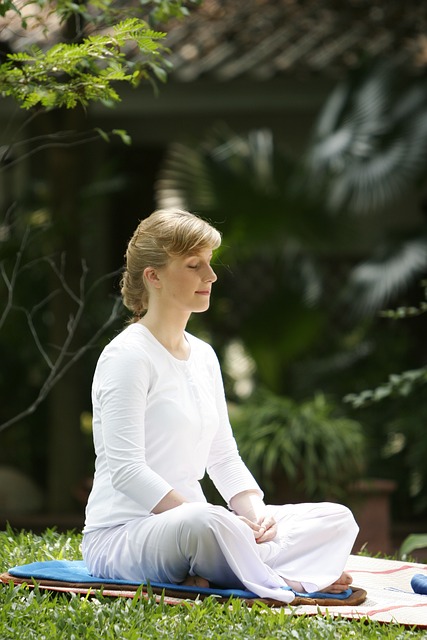Understanding Inner Peace
Inner peace represents a state of mental and emotional calmness, regardless of the chaos that may surround us. It is essential for personal growth and improves our overall wellbeing. Achieving an inner peace mindset allows individuals to navigate life’s challenges without becoming overwhelmed. This mindset provides a deep sense of satisfaction and a feeling of being grounded in the present moment.
When individuals cultivate inner peace, they tend to approach stressful situations with clarity. They respond instead of react, which transforms their interactions with others. Often, stress stems from a feeling of losing control, whether it be due to external pressures or internal anxieties. Practicing mindfulness, meditation, and self-reflection can greatly enhance our ability to embrace peace within ourselves. By creating an environment that fosters tranquility, we can enjoy the benefits of a peaceful mind, leading us to happiness and fulfillment.
Now, let’s explore actionable steps to build this vital mindset. Each step might involve adjustments in lifestyle, thought patterns, or habits. The beauty lies in the journey and discovering techniques that resonate with your personal growth and motivation. Be open to experimenting with different tools and methods until you find what truly works for you.
Practice Mindfulness Daily
Mindfulness serves as a powerful tool in cultivating an inner peace mindset. It focuses on being present in the moment, encouraging us to pay attention to our thoughts, feelings, and surroundings without judgment. By dedicating time each day to mindfulness practices, we train our minds to remain grounded and centered, even amidst the chaos of our daily lives.
You can start with simple practices, such as mindful breathing. Take five minutes each day to focus solely on your breath. Inhale deeply, hold for a moment, and exhale slowly. As you breathe, observe any thoughts that pop into your head, but don’t engage with them. Instead, gently redirect your attention to your breath. This exercise calms the mind and helps to clear away distractions, fostering a sense of serenity.
Beyond just breathing, you can incorporate mindfulness into daily activities. For example, try mindfulness while eating. Savor each bite, enjoy the texture, and truly appreciate the flavors. This practice cultivates a deeper connection to the present moment, enhancing your overall experience. Incorporating mindfulness into your daily routine can be transformative, leading you to develop an ongoing habit that prioritizes peace.
The Power of Meditation for Inner Peace
Meditation is another essential aspect of achieving an inner peace mindset. It provides a structured way to quiet the mind and connect with deeper aspects of oneself. With numerous forms of meditation available, you can choose one that resonates with your personal growth journey.
Begin with guided meditations. Countless resources, such as apps and online videos, provide guided sessions ranging from a few minutes to an hour. These sessions guide you in visualizing peace, letting go of negativity, and embracing a positive state of mind. Start with short sessions, gradually increasing the duration as you become more comfortable with the practice.
The goal isn’t perfection; it’s about progress. Allow yourself to focus on the journey of self-discovery and self-care. Regular meditation practice leads to a deeper sense of control over your thoughts and emotions. It teaches you to observe them without getting swept away, ultimately building resilience against stress.
Many people find that journaling after meditation enhances their experience. Spend a few minutes reflecting on your thoughts, emotions, or insights gained during your practice. Writing down these reflections can solidify the lessons learned and provide ongoing motivation to deepen your inner peace journey.
Embrace Gratitude
Gratitude plays a massive role in cultivating an inner peace mindset. When we focus on what we are thankful for, we shift our attention away from negative thoughts and emotions. This practice helps us appreciate the abundance that exists in our lives, leading to a more positive outlook overall.
One effective technique is to maintain a gratitude journal. Each day or week, jot down three to five things you appreciate. They can be as simple as a warm cup of coffee or as profound as meaningful relationships in your life. Regularly acknowledging what you value creates a balanced perspective, reinforcing positivity and reducing anxiety.
Additionally, consider sharing your gratitude with others. Expressing thanks to someone who has positively impacted your life not only brightens their day but also strengthens your connections. These interactions can create ripples of positive energy that contribute to both your peace of mind and the wellbeing of those around you.
Celebrating small victories is equally crucial. Whether it’s completing a task you’ve been putting off or reaching a personal goal, acknowledge these moments. Recognizing personal growth and motivation enhances self-esteem, propelling you toward further achievements and boosting your inner peace mindset.
Cultivating Healthy Relationships
The relationships we maintain significantly impact our mental and emotional wellbeing. Surrounding ourselves with positive influences fosters an environment conducive to inner peace. Nurturing connections that promote growth, understanding, and kindness fuels our motivation to cultivate inner peace.
Evaluate the relationships in your life. Do they add value to your wellbeing? Or do they drain your energy? If the latter, it may be time to distance yourself. This doesn’t mean severing ties without explanation. Instead, have open discussions about your feelings and find compromises whenever necessary. Respectful communication fosters understanding and can strengthen your bonds.
Engaging with those who uplift you naturally minimizes stress. Consider joining local groups or clubs aligned with your interests. This way, you cultivate new relationships that are rooted in shared passions, making it easier to connect authentically. Building a supportive community requires effort, but the results vastly enhance your journey toward an inner peace mindset.
Furthermore, remember the importance of setting boundaries. They help protect your emotional space, ensuring relationships remain healthy and fulfilling. Once you establish your limits, communicate them clearly and confidently. Respecting yourself and your needs enhances your motivation to pursue personal growth.
Self-Care: A Vital Component
In the hustle and bustle of life, we often neglect self-care. Embracing a self-care routine is key to nurturing an inner peace mindset. When you prioritize your wellbeing, you create a stable foundation upon which your mental and emotional resilience can thrive.
Start by carving out time for yourself. This may involve participating in activities that bring you joy, such as painting, hiking, or reading. Revisiting hobbies or exploring new ones fuels your passion and invigorates your spirit. Try scheduling “me time” each week to indulge in these activities without distraction.
Physical wellbeing also plays a significant role in mental peace. Regular exercise releases endorphins, also known as the feel-good hormones. Aim for a blend of cardiovascular and strength-training exercises tailored to your preference. Yoga is another excellent option, combining physical movement with mindfulness and breathing techniques to promote relaxation and balance.
Nutrition impacts our state of mind considerably. Fueling our bodies with nutritious foods positively shapes our mental state. Incorporating whole foods rich in vitamins and minerals provides the energy required for personal growth and motivation. Aim for a balanced diet with plenty of fruits, vegetables, whole grains, and healthy fats. Staying hydrated also contributes to a clearer mind and emotional balance.
Engaging in Continuous Learning
Embracing a mindset of continuous learning nurtures personal growth and enhances your motivation to seek inner peace. The world is full of knowledge waiting to be explored, and keeping an open mind leads to new perspectives that enrich your life.
You might consider enrolling in workshops, courses, or reading books related to emotional intelligence, personal development, or stress management. Engaging with topic experts exposes you to different techniques and philosophies that resonate with your aspirations for peace and stability.
Additionally, sharing your knowledge with others creates a fulfilling cycle of learning and teaching. Engage in discussions about what you’ve learned or help others on their journey toward wellbeing. This not only reinforces what you’ve learned but also fosters meaningful connections and a sense of community.
Cultivating a habit of reflection after learning is also powerful. Spend time considering what resonated with you, how it can enhance your life, and how you can integrate new insights into your daily practices. Reflective learning promotes a deeper understanding of oneself and strengthens the commitment to fostering an inner peace mindset.
Finding a Support System
Having a reliable support system can be invaluable on the journey toward cultivating an inner peace mindset. Surrounding yourself with like-minded individuals enhances your motivation and reinforces your commitment to personal growth.
Consider connecting with professionals who specialize in mental health or self-improvement. Therapists, coaches, or mentors provide guidance tailored to your unique circumstances. They can offer insights and techniques essential for navigating challenges and fostering resilience.
Additionally, engage with online forums or local groups where individuals share similar goals. Participating in discussions, sharing experiences, and learning from others creates a sense of belonging. This dynamic environment encourages accountability and boosts motivation to persist in your quest for inner peace.
Remember, cultivating a support system is not just about seeking help, but also about being there for others. Supporting friends and loved ones creates an enriching cycle of positivity that strengthens relationships and enhances your journey toward emotional wellbeing.
Challenges and Solutions in Your Journey
It’s essential to recognize that challenges will arise in your journey toward cultivating an inner peace mindset. Life can be unpredictable, introducing stress, anxiety, or unforeseen events that shake our calmness. Acknowledging this reality frees you from the expectation of perpetual peace, allowing you to embrace discomfort as part of growth.
Developing coping mechanisms to handle these challenges is crucial. Techniques like deep breathing, stepping away for a moment, or engaging in physical activity can help alleviate acute stress. Creating a toolkit of strategies prepares you to handle disruptions while maintaining emotional balance.
Moreover, reevaluating your perceptions can change your response to challenges. Instead of viewing difficulties as insurmountable hurdles, see them as opportunities for growth. Ask yourself, “What can I learn from this situation?” Shifting your mindset encourages adaptability and prevents feelings of helplessness.
Finally, be kind to yourself during this process. Understand that it’s normal to have ups and downs on your quest for inner peace. Allow yourself grace as you navigate the complexities of life. Strive to keep pushing forward, knowing that each small step contributes to your overall journey toward emotional wellbeing.
FAQs
1. What is the inner peace mindset?
The inner peace mindset refers to a mental state characterized by calmness, emotional stability, and clarity, enabling individuals to navigate life’s challenges without becoming overwhelmed. It’s vital for personal growth and holistic wellbeing.
2. How can mindfulness contribute to inner peace?
Mindfulness helps individuals focus on the present moment, reducing stress and anxiety. By practicing mindfulness regularly, people can develop awareness, enhance emotional regulation, and promote a consistent inner peace mindset.
3. Is meditation essential for cultivating inner peace?
Meditation plays a significant role in fostering inner peace. It allows individuals to connect with themselves, quiet racing thoughts, and develop resilience. However, it’s not the only method; various techniques can contribute to achieving inner peace.
4. How can relationships affect my peace of mind?
Healthy relationships promote emotional wellbeing and tranquility. Conversely, toxic relationships can increase stress and anxiety. Surrounding ourselves with supportive influences nurtures our journey toward inner peace.
5. What if I face challenges in achieving inner peace?
Challenges are a part of the journey. Developing coping mechanisms, reframing perceptions, and practicing self-compassion help navigate difficulties while cultivating a robust inner peace mindset.



